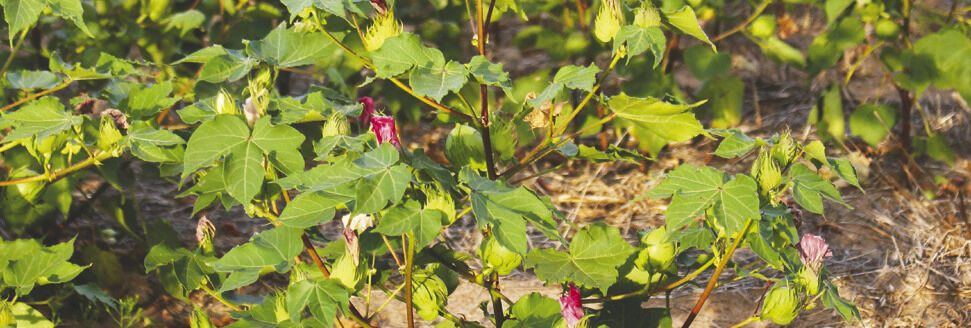The work of a Texas Tech University researcher is being recognized for its potential contribution to not only the local economy but as a game-changing method to produce usable products from low-grade cotton.
Noureddine Abidi, the Leidigh Professor in the Department of Plant and Soil Science and director of the Fiber & Biopolymer Research Institute, was awarded the 2020 Discover Natural Fibres Initiative Innovation Award for his work and the patent received for his discovery of changing low-grade cotton to a cellulose gel that can be used in a wide variety of ways.
The eight finalists for the 2020 DNFI Innovation Award were from institutions located in the United States, Germany, India, and Iran.
"I am pleased to be recognized by this international, natural-fibers stakeholder community," Abidi said. "Our innovation to develop bioplastic materials from low-quality cotton cellulose is important, not only to produce biodegradable and environmentally friendly materials, but also to find a market for our low-quality cotton and cotton wastes."
Abidi is a polymer chemist whose research focuses on the physical and chemical characteristics of biopolymers and their functionalization and transformation, which leads to practical, advanced applications. One of those applications involves chemical functionalization to impart potential antimicrobial properties.
In September 2019, Abidi received a patent for a process he developed that can break down low-grade cotton into pure cellulose, which can then be converted into a gel that can be used in 3D printing, for example, or other processes to create usable, biodegradable products such as bioplastic materials. He has two provisional patents pending that focus on the cotton dissolution process in ionic liquids and conversion to bioplastic films and other bioproducts.
Abidi’s goal with the research is to be able to take the gel from low-grade cotton and use it to replace as many nonbiodegradable products, like plastic trash bags, as possible. Abidi and fellow researchers already have shown in the FBRI laboratory that the process will work, using it to convert low-grade cotton into products such as protective film, which could potentially be used to make face shields for hospital workers caring for coronavirus patients.
The gel also can be used in 3D printers, which can then be used to create myriad products with the potential of helping curb the coronavirus outbreak. During their research, Abidi and his colleagues placed the gel into a 3D printer jet to produce scaffolds, or the skeleton of other products, or placed it in a mold to give it a certain shape, such as porous materials. About the only limit to the process is whether there is a need for a product that can withstand specific conditions, such as high humidity, high heat or high strength/elongation.
"Dr. Abidi is a world leader in fiber biochemistry and cotton textile manufacturing research," said Glen Ritchie, associate professor and chairman of the Department of Plant and Soil Science. "We are proud of him and his contributions to natural fibers research, as recognized by the Discover Natural Fibres Initiative through this prestigious award."
In addition to his work in the College of Agricultural Sciences & Natural Resources, Abidi is a member of the Texas Tech Zoonoitc & Infectious Diseases Research Center, where his work potentially can help reduce any shortages of personal protective equipment that may arise from the battle against COVID-19. With a team from Canada, he submitted a proposal for the conception of a new high-performance respiratory mask.
Abidi’s previous research has focused on the creation of antimicrobial textiles, self-cleaned textiles and the physicochemical characterization of pollen shells. This is done using Fourier-transform infrared microspectroscopy, a technique used to obtain an infrared spectrum of absorption or emission of a solid, liquid or gas, and thermal gravimetric analysis, where the mass of a sample is measured over time as the temperature changes.
He also has conducted research using FTIR microspectroscopy imaging characterization of biological tissues such as liver, lung and adipose tissue, serum and plasma, as well as decellularized spinach leaf scaffolds.
Abidi holds a doctorate in theoretical, physical and analytical chemistry from the University of Montpellier II in France. He joined the FBRI in 1999 as a research associate working in chemical finishes and textile chemistry, holding a bachelor’s degree in chemistry and a master’s degree in polymer chemistry. He has served as managing director of the FBRI for the last three years.
He also served postdoctoral stints at the Laboratory of Physical Chemistry of Condensed Matter at Montpelier II and the Material and Membrane Processes Laboratory at the National College of Chemical Engineering of Montpellier, France.



